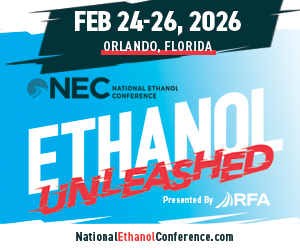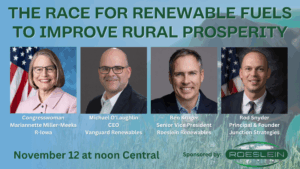 The Renewable Fuels Association submitted comments Monday to the California Air Resources Board (CARB) voicing concern that CARB’s recent Biofuels and Land Use Change Public Forum presented a biased and unbalanced view of the current state of research and understanding of indirect land use change (ILUC) analysis.
The Renewable Fuels Association submitted comments Monday to the California Air Resources Board (CARB) voicing concern that CARB’s recent Biofuels and Land Use Change Public Forum presented a biased and unbalanced view of the current state of research and understanding of indirect land use change (ILUC) analysis.
RFA Chief Economist Scott Richman also noted that several of the speakers at CARB’s forum “are longtime critics of U.S. crop-based biofuels who were given a venue to air allegations that strayed far from analysis and sometimes veered into personal opinion unrelated to indirect land use change.” There was little opportunity for rebuttal based on the body of ILUC research that exists or for industry stakeholders to provide input. RFA also raised concern about potential conflicts of interest for some of the speakers chosen by CARB to present their views during the forum.
RFA also stressed that CARB’s ILUC penalty for corn ethanol is “obsolete” and must be updated to reflect “methodological improvements in assessing ILUC and more extensive historical data.”
Richman’s comments also argued that there is no impetus for applying an ILUC penalty to corn ethanol, since corn yield growth has significantly outpaced changes in domestic consumption of ethanol, particularly in California. An analysis submitted by RFA earlier this year shows that the amount of land needed to produce ethanol used in California has fallen significantly since the state’s Low Carbon Fuel Standard was implemented.










